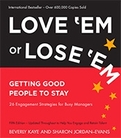BK Blog Post
Five Great Advantages that Startups Don't Take Advantage Of
 Posted by
Jeevan Sivasubramaniam,
Managing Director, Editorial,
Berrett-Koehler Publishers Inc.
Posted by
Jeevan Sivasubramaniam,
Managing Director, Editorial,
Berrett-Koehler Publishers Inc.

|
| Buy Peter's Book Here |
Peter Cohan has started several profitable companies and is also a venture capitalist who knows what startups have to go through to get established. In his latest book, Peter discusses how startups can take advantage of various factors to launch their businesses.
For this blog entry, Peter shares Five Great Advantages that Startup CEOs Don't Even Realize That They Have:
1. You have the ability to attack big competitor vulnerabilities.A big market is big because there are huge competitors who are likely dominating it. You might think that those big companies will do anything to defend their market share, but you would be wrong. They won’t cut price below their costs because that would threaten their quarterly profits - which would crater their stock price.
Since you have virtually no costs, you can sell your product at a much lower price than they do and still make a profit. If you start to gain market share, the big company won’t match your price unless they can cut their costs enough to preserve their currently fat profit margins.
2. You can lure top employees and talentI don’t know anyone who actually liked working for a huge company because they often feel like powerless drones whose work has very little personal or professional meaning and mainly benefits a handful of people who don’t even know they exist.
This means that your start-up has a chance to lure some of the best talent -even though you won’t be able to pay high salaries. People crave the chance to do work that they find personally meaningful and work with other people who feel the same way. If you can convince talented people that your start-up can create that kind of profound meaning, they will gladly give up a chance for a high salary in a big company. Your offer of stock options or equity won’t hurt either.
3. You have a steeper learning curve.Big companies take a long time to make decisions because countless bureaucratic obstacles have to be overcome before a big company can introduce a new product, raise its prices, lower its costs, or go after a new market opportunity. And as long as it takes big companies to make decisions, it takes them even longer to implement those decisions.
But a start-up can go through seven such learning cycles in the time it takes a big company to complete one. This means that your start-up can get much smarter than a big company about a new opportunity because it can get prototypes to customers, find out fast what works and what does not, and adapt to what you’ve learned.
4. You can tap your network to get needed resources.People and other leaders are much more willing to help out gifted and inspired start-up CEOs than to lend a hand to corporate power brokers.
If you have a track record for winning, then the people in your network will want to give you their time and money (some more of each than others). If you need help making a marketing plan, raising capital, deciding who to hire and fire, which company to acquire, getting customers, forging partnerships, or designing products - people in your network are there to help.
5. You have the ability to take market share by delivering far more value.If you’ve picked the right market opportunity, big companies have set the bar pretty low by giving customers a product that is priced too high and does a mediocre job of meeting their needs. But because they dominate the marketplace, they have little reason to do better.
Your start-up is poised to deliver them much more bang for the buck by finding a problem that is causing that industry’s customers great pain but that no other competitor is solving, and figure out a way to solve it while charging a lower price. Then people start coming to you instead. (Remember the pain of video rental late fees and having to drive back and forth from Blockbuster? Netflix did.)
These five start-up resources only look like nothing to a big company. But if you’re an entrepreneur worth your salt, you’re already exploiting them to scoop up that big company’s customers with a spoon.






